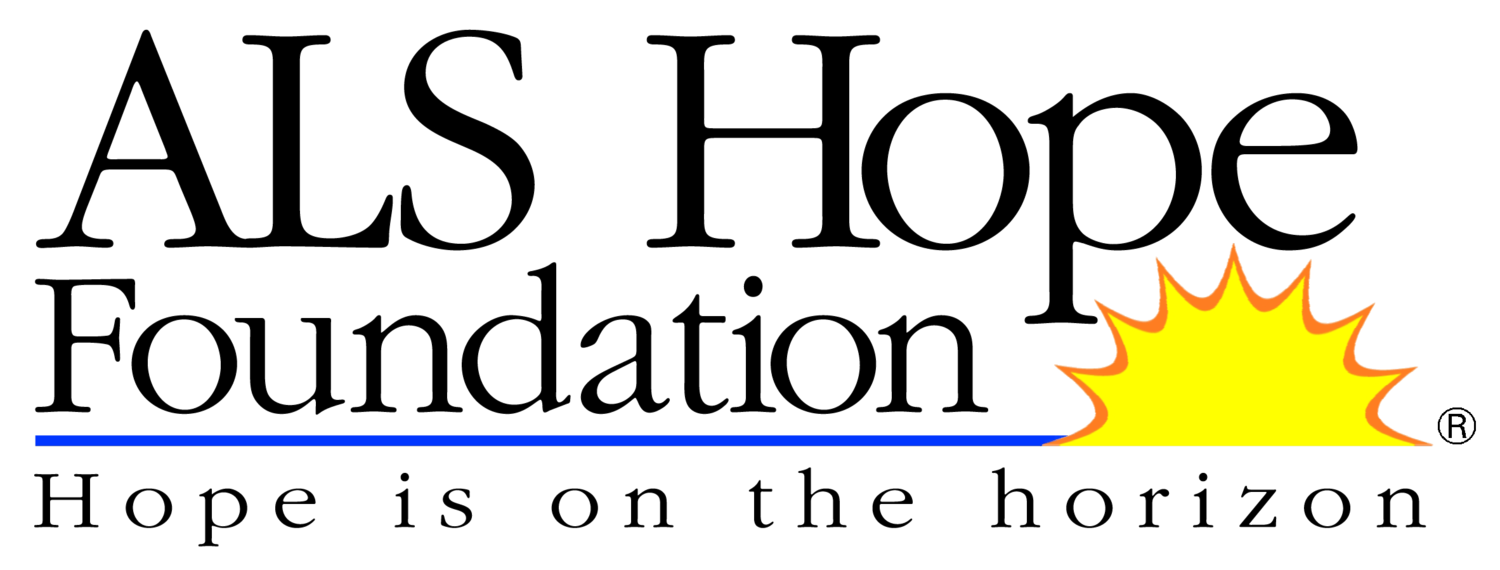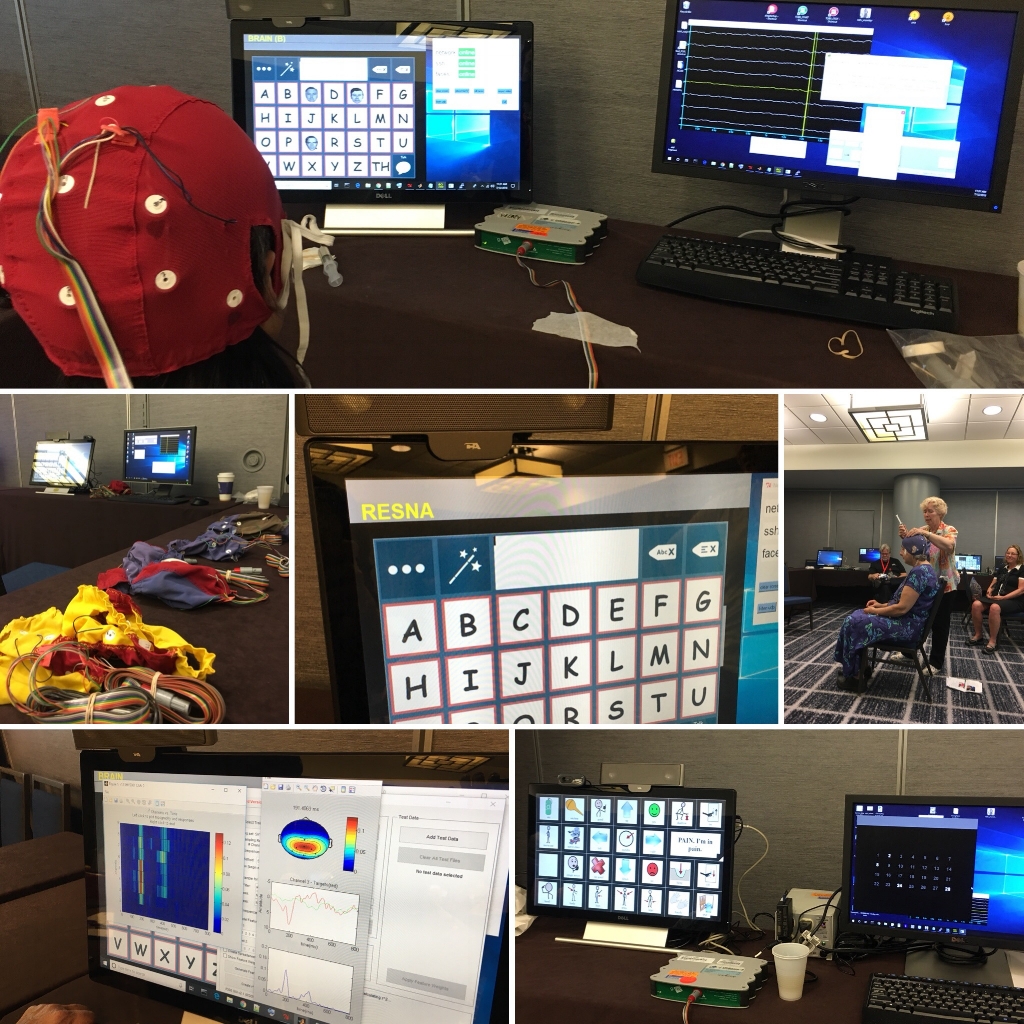RESNA 2018 #IngenuityATWork
/The Rehabilitation Engineering and Assistive Technology Society of North America (RESNA) held its annual conference, RESNA 2018 #IngenuityATWork, in Crystal City, VA July 11-15, 2018. Sara Feldman, PT, DPT, ATP, the Assistive Technology Professional at the MDA/ALS Center of Hope, attended the conference and shares her experience:
The Annual RESNA Conference is an amazing conference with attendees that include Rehab Engineers, PTs, OT, SLPs, researchers, suppliers, manufacturers, users and other individuals working with assistive technology. I have been a member of RESNA for over ten years, and attend the conference to keep abreast of the technology that is available today as well as to learn about the technology that is on the horizon for the future.
The pre-conference began with two half day Instructional Courses. The first was on “Using Brain-Computer Interface (BCI) as an Access Method” and was given by Theresa Vaughan, National Center for Adaptive Neurotechnologies; Peggy Dellea, Boston Children's Hospital; and Marcia Scherer, Institute for Matching Persons and Technologies. They provided an excellent update on the state of the BCI system in the US today as well as allowed for hands on time for trial and demonstration. We have been working with the BCI at our clinic since 2001, so it was great to see the enthusiasm of the other participants and see what research the other centers were engaged in. One really interesting research project is work they are doing in collaboration with TobiiDynavox to connect the two systems. We are all looking forward to hearing how that is progressing!
The afternoon session was on “Hands-free Tech, Access from A to T: A Comprehensive Discussion of High-level, High-efficiency, Hands-free Access” given by James Gardner and Olivia Erickson, University of Utah. The session included hardware and software options for the computer; hands-free access to phones; the latest in Apps; home automation; and mounting systems. Watch for a more detailed description of the products shown on our website in the near future! Some of them are also included in the information below.
The main conference then began with the Plenary Session, “AT Around the World” with speakers from Australia, Brazil and the UK. Natasha Layton, PhD, the President of Australia Rehabilitation and Assistive Technology Association (ARATA), Evandro Guimaraes, PhD, MS, AT, Ministry of Human Rights, General Coordinator of Assisitve Technology for the Secretariat of People With Disabilities Rights (Brazil) and Lord Chris Holmes, of Richmond MBE (United Kingdom) Co-chair of the All-Party Parliamentary Groups on Assistive Technology made up the panel. They each spoke on the state of AT programs and advocacy in their own countries and the importance of organizations such as RESNA.
The RESNA conference was filled with many excellent presentations. Here is a description of them with a few links for you to check out!
“Introduction to Accessibility of Phones, Tablets and Computers” was presented by four occupational therapists from MedStar National Rehabilitation Network in the DC area. They discussed options from Low Tech (Handizap 6th Digit, Shapedad) to High Tech (QuadJoy, Glassouse, Tecla-e). This was my first introduction to Sesame Enable, a new App that allows fully hands free access of an Android phone or tablet!
There were two presentations on Home Automation and Environmental Control, each with a slightly different focus. The use of consumer products for home automation and environmental control was demonstrated using the Amazon Echo, one presentation (“Amazon, Google and Bears, Oh My” by Antoinette Verdone, ImproveAbility, and Brian Burkhardt, McGuire VAMC) giving a broad overview and one (“Environmental Control Redefined” by Charles Sammartino and Arman Rowshan, Inglis House) using a case study. It is amazing how these new smart speakers are making environmental control more accessible!
The Access and Communication Technology Special Interest Group held their workshop on “Sharing Solutions, Igniting Ideas” on new, innovative products, either commercially available or built by them or their students. The BreakBoundaries bed control caught my attention as a new option for alternate access to the bed controls. The Vysor App allows you to control your Android phone via your computer. The JBL Clip 2 blue tooth speaker is a durable, waterproof, portable speaker you wear on a lanyard around your neck so your voice appears to be coming from you versus your device. The Gboard App can use a Morse code keyboard for iOs and Google! They also shared the Craig Hospital Assistive Technology website.
In “AT Solutions for Individuals with Motor Impairments,” the team from Shepherd Center in Atlanta and Courage Kenny Rehab in Minneapolis discussed the variety of ways they help the individuals that they see. New information included: The Plantronics Voyager Legend is a completely hands-free blue tooth earpiece. The Bixby App allows you to use a Samsung phone hands-free, including hanging up! The Honeybee is a new proximity switch. Instamorph is a moldable plastic. They also shared their Pinterest site with us!
The “Novel Clinical Application of Virtual Reality Technology Through Community Partners” was a big hit. Erin MacNamara and Brian Ricks QLI Omaha discussed and demonstrated Virtual Reality. I even had the chance to try it!
During the “Emerging and Innovative Technologies Show and Tell” the use of 3D printing at the Hunter Holmes McGuire VA in Richmond VA was brought up and there was a lot of interest in how people were using it to help out clients. Here is a video showing their work.
During the Poster Session, I had the chance to catch up with Adriana Klein, an OT from Brazil that we first met back in 2006 when the ALS Hope Foundation and ABrELA participated in a Partnership Program together. It was great to see both her and the work she is doing on an App for Seating Devices Prescription to be used by therapists in Brazil.
The final Plenary Speaker was Gregg Vanderheiden. He discussed the previous work that he and his team had done including ensuring that accessibility features stayed in the Windows operating system! His advice to newcomers to the assistive technology field was simple:
“You will never regret what you did with your life when you spend it in service to others in a way you enjoy. Just pick something (anything) you love that helps people and do the best job you can. You will never be sorry.”












